On the occasion of International Holocaust Remembrance Day
Monika Stafa
“Experience has taught them to be sometimes harsh and sometimes kind to angels, who forgive everything and do not discriminate against anyone. It is not true that Albanians do not know how to be racist. But they are not racists for no reason. They are racists against the invaders. Racism against invaders is a form of resistance. “A resistance to an empire that oppresses you day and night and that you dare to despise to the point of contempt.”
Ismail Kadare
Albanian behavior (people, government, religious clerics, political and military forces) towards Jews began to become known beyond the borders of Albania after 1990, when US Congressman Tom Lantos (a Hungarian Jew who survived the Holocaust) and former US Congressman of Albanian origin Joseph DioGuardi visited Tirana. During the visit, they were presented with a collection of documents, mainly lists of Jews who had come from Central European countries and had been rescued in Albania. Tom Lantos and former Congressman Joseph DioGuardi were the first American officials to enter Albania in fifty years. The then president, Ramiz Alia, handed over to Tom Lantos, the Holocaust survivor, a complete file previously unknown, fanatically preserved in the Albanian archives; documents, lists of names, personal letters, photographs, newspaper clippings and other previously unpublished data proving the heroic deed of Albanians in defense of Jews during L.II.B. Upon returning to the US, DioGuardi sent these materials to Israel. They then underwent a verification process by the Holocaust Martyrs Memorial Authority in Yad Vashem. Albania was a safe haven for persecuted Jews. Traces of evidence exist in the cities and villages of Mitrovica, Prishtina, Gjilan, Deçan, Peja, Gjakova, Shkodra, Kruja, Tirana, Berat, Kavaja, Durres, Elbasan, Librazhd, Korca, Dibra, Burrel, Fier, Lushnja, Vlora, Delvin, Përmet or Gjirokastra etc. Hundreds fled Europe to Albania and the Albanian regions because they knew that neither the people nor the government would persecute them there. It has been more than 70 years since L. II. B. concluded and the study of the Holocaust is increasingly turning into a genuine scientific discipline in Albania as well. It has already become internationally known that the number of Jews who were rescued in Albania is more than 2,270. According to some estimates, the figure clarified by the additions of the “secret part”, which is not in the list of names, should bring the number of Jews rescued to 3,240. Between 1933 and 1944, Albania in southeastern Europe rescued not only its own Jews but also every Jew who could reach its borders. They were not deported or surrendered. The Jews were not robbed and no one took their property. Not even an official law bothered them. The study and search for other lists of saved Jews is still ongoing.
Who saved the Jews? Dilemmas between the Albanian ethno-legal code and the will to save the ‘other’ in danger
Over the last two decades, public and scientific opinion has shown an increased interest in this piece of history. But along with scientific treatments, there was also the neo-exotic approach associated with the cult of Besa or otherwise the Code of Honor. Scholar and ethnologist Nebi Bardhoshi, thinks that there are two groups of scholars when arguing on this issue. A group that thinks that Albanians are pragmatists and pragmatism according to him has different nuances. In this context, Albanians can be called as people without ideals, as people of action and not of ideas, as non-believers and above all materialists. On the other side, there is a group of scholars who build another profile of the behavior of Albanians regarding the Code of Honor. Supported mainly by pro-Albanians, this type of profile presents the Albanian man, first of all, with a host of values. From here, it is accepted that they have some bad habits, but are dominated by a behavior with value acts. Part of this “albanological cosmology”, according to Bardhosh is the idea of hospitality and Besa. The code, which is believed to come from the most original Besa and hospitality status, is where customary law operates. In addition to local authors, this explanation is shared by the Jewish-American scholar Harvey Sarner as well as the Museum of Holocaust History in Yad Vashem, which examines the cases and makes the official proclamation of the non-Jewish nobles. In the same way was organized the exhibition of the Jewish photographer Norman Gershman “Besa: Code of Honor – Albanian Muslims who saved the Jews during the Holocaust”, an exhibition that has circulated so far, in almost a third of the world. As a basic part of the Kanun, this Code is very old among the Albanian society. Based on that, the house of the Albanian is the house of God and friend at every hour of the day and night. Fortunately for Jewish refugees seeking refuge among Albanians – many of whom were Muslims – the newcomer ‘guest’ to the country would be an equally welcome guest in his own home. The Besa Code, according to some foreign scholars, influenced Albanians of different religions to provide endangered Jews with secret shelter during those difficult years of Nazi terror. In his work “Salvation in Albania”, Harvey Sarner writes that in the Kanun there is no modern western concept of “foreigner”, while talking about another concept, that of “guest”. Therefore, during L.II.B. There were no “foreign” Jews in Albania, but only “guest” Jews, who had to be sheltered and protected even at the risk of their lives.
Historical experience proves a coexistence without complexes and free from superiority or inferiority between Albanians and Jews for more than 2000 years. The facilities found by the Jews in the Albanian state encouraged visible movements of the Jews of this country. The French scholar Patrice Najbor, who has dealt with the study of this issue, says that the Jews in Albania had all the official authority of defense except the customary tradition that is still found among Albanians today, the tradition of hospitality. The hospitality code has made its own, it was visibly displayed. “Albanians have considered it their duty to protect and hide Jews fleeing persecution, at a time when major European nations were ousting them,” he said in a conversation. For a foreigner to be enthusiastic about traditional Albanian cults, this is no longer a surprise but Albanians have to be more realistic. It is true and easily factual that there is a kind of convergence in the behavior of Albanians towards Jews. They have been helped by both Muslims and Christians; by both anti-fascists and pro-fascists; both by partisans and ballists; both from the rich and the poor; both by the people and by the governing authorities. Without underestimating at all the high traditional virtues of the Albanian people, the argumentation of the issue based only on ethno-legal law is insufficient. If we put the issue in its historical context we can argue that it was not only the “Besa Code” that saved the Jews in Albania. Another French researcher, prof. Claire Lavoine, has a different approach regarding the phenomenon of ‘rescued in Albania’. She explains that this behavior of the Albanian towards a foreigner does not appear as individual behavior but as an unparalleled behavior of one people towards another in danger. Here is how she describes this part of her reflection. “…. I realized that the one called” Code of Honor “in N. Tozaj’s novel had nothing apological or declarative. “The ‘Code of Honor’ was inevitably a conditional factor in the behavior of Albanians towards foreigners, especially foreigners at risk.” But the dilemmas that Kodi Besa, has led the Albanians towards their virtuous behavior to save the other in danger, still remain as evidence of a living historical evidence that comes from the distant past. Certainly, many scholars with romantic-nationalist views go so far as to use the term “ethnosocial behavior” for this attitude of Albanians, others use the term “ethnotype” but is it only the Besa Code, the one that led Albanians to help others in danger? What is really the approach of the relations of Albanians with foreigners in the ordeal of different historical stages? Foreign scholars claim that the pious are a diverse group and the only common denominator of their values is humanism and courage, which is manifested by upholding their moral principles. Nechama Tec, an American Holocaust scholar of Jewish-Polish descent who has studied many cases of nobles, during her research has amassed a set of characteristics and traits based on different ethnicities. This also applies to the case of Albania. According to her, independence in the libertarian spirit of the Albanians and the savior in general, enabled them to act contrary to the rules and laws of the occupier. Ethnologist Nebi Bardhoshi has a completely different approach in terms of strict adherence to the customary code of Albanians to save the other in danger. He explains that Besa and hospitality are not exclusively instituting or features of customary law. The field of action of these institutions, a field which is many times wider than that of customary law collected, openly reflects this experience. Bardhoshi argues that Besa and hospitality in the modern approach to the ethnography discipline, have no ethnic boundaries. Meanwhile, a code of ethics, say epic, extending to the whole sphere where Jews and other foreigners have acted, is present and equally in action. This epic code about the alien has a lot to do with his image, which in the eyes of all remains at the same time alien as well as weak. Let us come to the Jews, he further explains. We can cite numerous cases where Jews have been forced to Islamize under the weight of accusations as the cause of the plague over the centuries throughout history. But the treatment of the weak, of the foreigner or of the people in need, in the unwritten Albanian code of hospitality is marked at the same time, as an epic or human act and above all as an obligation to the divine. This is where the behavior of Albanians towards endangered Jews finds an explanation, without the need to refer to their hospitality or their customary code. The house in the Albanian mentality has its specific status. Even when it is empty, in the psychology of his (Albanian) behavior she creates safe protection and shelter, so whoever enters it, everyone should even feel out of any danger. Regarding the issue or use of the term “humanism”, according to him, it is worth articulating as such but at the same time the theoretical concern in this case is not to prove whether or not it is humanism, but what form is offered in this humanism.
What is actually the source of inspiration for this behavior?
It is not enough just the tradition of hospitality or trust in this dignified behavior of Albanians towards Jews, or simply the status of a foreigner. Albanian society should not be analyzed only through the code of the so-called “ethno-culture”. The analysis of cultural behavior without the relationship with power, that is, without political relations in action, would be firstly deficient and secondly unfair. This kind of unique relationship with the foreigner in danger remains a matter of study not only in the discipline of history but also in ethnography and anthropology. Not only was every Jewish life endangered saved in Albania during the Holocaust but also because the number of Jews who fled Europe and settled in Albania doubled even more during L.II.B. Albanians have known all the diseases of the time, says our writer Ismail Kadare in an interview. According to him, the Albanians, being a people who have suffered under the clutches of the occupier for hundreds of years, understand well what resistance to the enemy means. They psychologically understand what happens to the other when he is in danger. “Experience has taught them to be sometimes harsh and sometimes kind to angels, who forgive everything and do not discriminate against anyone. It is not true that Albanians do not know how to be racist. But they are not racists for no reason. They are racists against the invaders. Racism against invaders is a form of resistance. “A resistance to an empire that oppresses you day and night and that you dare to despise to the point of contempt.”
Jews as participants in the war
Both political organizations, although with opposite political convictions, protected the Jews and even sheltered them in the respective homes of their people, nationalists or communists. For both existing Jews and newcomers, it is documented that political organizations such as the National Liberation Front and the National Front, although in conflict with each other, took the same stance. In the diary of the martyr Kristaq Tutulani, only partially published, during the entire period of 6 months that he kept notes as an activist of the Communist Party (January – June 1943), there is sometimes talk about the charge d’affaires with the Jews, about these people who they had to be taken under protection as civilians but also with their voluntary mobilization in the anti-fascist war. While Sejfi Protopapa in his memoirs, writes about events and concrete people, historical personalities of both political directions who worked together to facilitate the protection of Jews from eventual extermination even though they belonged to different political beliefs or different religious beliefs.
For the period of German occupation of Albania, various authors have mentioned two cases when Jews were arrested by the Nazis. The much talked about case is that of the Arditi family, in the city of Shkodra with six members. His name is on the list of “martyrs” of those Jews who took an active part in the war as communists or as partisans. Based on our research, this case is not related to their arrest as Jews because witnesses of the time indicate that the Ardites had converted and converted to Orthodoxy. Their capture and deportation to concentration camps has to do with the communist tendencies of Dario Arditi, who had gained such convictions since Albania was occupied by fascist Italy. The endangered Jews did not all hide in anticipation of liberation from Nazi danger. There were also those who lined up against the foreign invaders in Albania, mainly those who were otherwise called resident Jews since they knew the Albanian territory better. In the ALP archive in the D.P.A. Tirana, there is a letter addressed to Kom. of the SNP of the Berat region, namely the “highlander” comrade from Comrade Buna, where it is reported that from the study of reports on the social life of Jews interned in Berat, it is understood that the Jewish youth interned in this city do not accept the fascist regime even proposed their organization in the war against foreign invaders”. The first to mention the participation of a number of Jews in the anti-fascist war of the Albanian people is Samuil Mandil, who in an article published in the daily “Bashkimi” in 1945, proposed that the five Jews who had lost their lives in the war as David Cohen, Jakov Avramovic, Jusuf Konforti, Jusef Bivas, Jacques Ruben to be declared martyrs of the Albanian people. To the extent that we have been able to control these sources, it turns out that the participation of Jews in the anti-fascist war is greater than the archival documents record.
In conclusion, the response of the Albanians to help the Jews at the time of the occupation of Albania by Germany was exemplary, the movements of the Jews to the depths of Albanian territory took on an organized character. The “National Liberation Councils” contributed to their movement from one settlement to another by hiding under the guise of traditional Albanian costumes or equipping them with false documents. But it should be noted that even in these difficult circumstances, the assistance was mutual. The young Jews contributed to the liberation of Albania, they joined the units of the National Liberation Army. Their participation is proven in the war diaries of the political emissaries of the partisan battalions such as; in Fier and Berat. Some of them in the fight against the common Nazi-fascist occupier lost their lives being listed as martyrs of a common homeland with the natives. They were David Juda Cohen, Jakov Avramovic, Jusef Solomon Konforti, Jusef David Bivas, Jacques (Isaac) Emanuel Ruben, Leo Tyjeri, Jakov Josef Bahar, Baruh Isak Baruh and Dario Jacques Arditi. In the article published only a few days after the liberation of Albania from the foreign occupier, their compatriot S. Mandil, wrote “Eternal glory to these brave boys who gave their new life for the freedom of the Albanian people, who fully deserved this sacrifice”. /Memorie.al





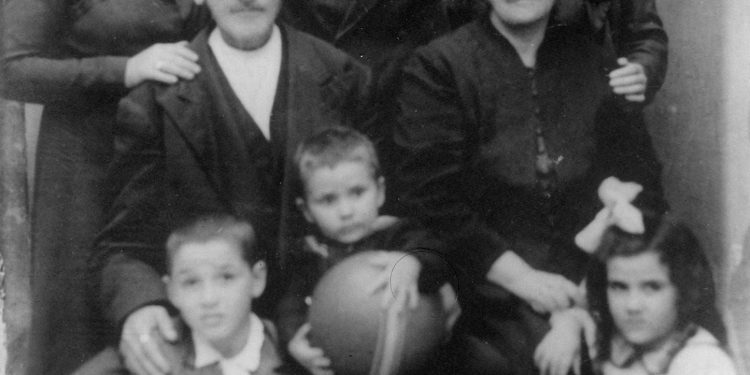
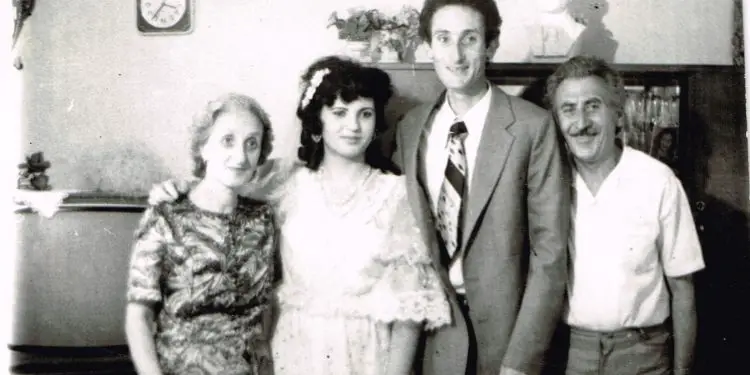

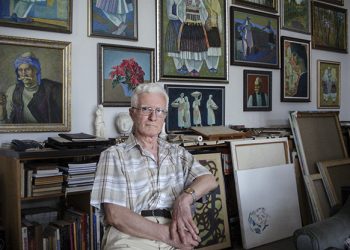
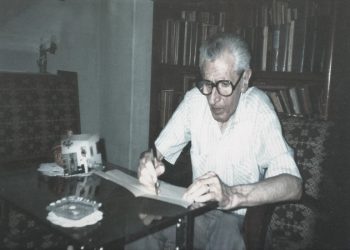
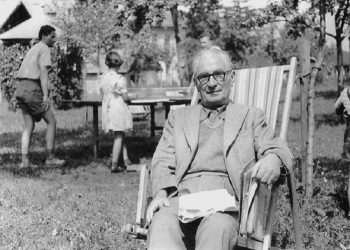

![“Count Durazzo and Mozart discussed this piece, as a few years prior he had attempted to stage it in the Theaters of Vienna; he even [discussed it] with Rousseau…” / The unknown history of the famous Durazzo family.](https://memorie.al/wp-content/uploads/2026/02/collagemozart_Durazzo-2-350x250.jpg)
